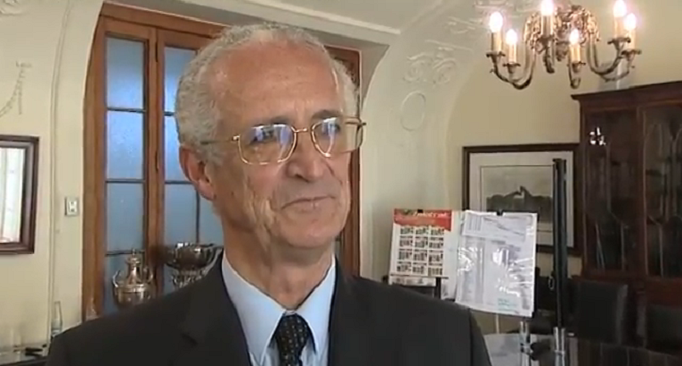Recent alarming events in athletics have provided proof that racing is ahead of the game in the implementation of drug-free policies, according to leading international administrator Louis Romanet.

Louis Romanet – encouraging comments
“We’re succeeding,” he said, “and I believe we’re in front of most other sports around the world.
“You have only to read the newspapers and every day there seems to be a big issue on integrity in other sports. Maybe we don’t communicate enough with the outside world about what we do, but I think our image is changing thanks to the problems other sports are facing.”
Speaking on the final day of the Asian Racing Conference in Mumbai on Thursday, Romanet, chairman of the International Federation of Horseracing Authorities, warned against complacency.
“It’s an ongoing battle,” he said. “It’s never perfect as big labs are manufacturing drugs for human beings which later on are used for horses, so we have to permanently invest and improve our quality if we don’t want to lose our place.”
Pointing to the IFHA’s international agreement on racing and wagering, in which an eight-page article covers screening limits for 28 therapeutic substances and detection times for 32, Romanet said: “It’s been a success. It doesn’t mean allowing horses to race under medication, but we’re allowing those that have minor traces of a therapeutic substance which can have no effect on its performance, so that trainers can take care of their horses.”
He added: “The global integrity of racing is a basic principle and must be our permanent priority, for the confidence of the betting public and for the breeding industry.”
Brian Stewart, head of equine welfare at Racing Victoria, who has been working at the heart of the cobalt cases in Australia, agreed with Romanet, saying that racing was “doing pretty well compared to other sports” on implementing drug-free policies.
 However, Stewart called for a change in culture to “disentangle legitimate medication from the taint of an anti-doping connection,” referring to the public perception that “someone has an Amazonian treatment or a Chinese herb that gives them an edge”.
However, Stewart called for a change in culture to “disentangle legitimate medication from the taint of an anti-doping connection,” referring to the public perception that “someone has an Amazonian treatment or a Chinese herb that gives them an edge”.
He added: “One problem of our culture, especially around racing stables, is we can become desensitised to accepted practices. What we regard as perfectly normal can be viewed by outsiders as completely unacceptable. We have to be careful not to be caught up in our own world.”
Stewart called for better and further education of trainers, saying: “Very few professions don’t require some form of continuing education, and I don’t think racehorse trainers are any different. People wouldn’t be too impressed if their accountant said he was too busy to catch up with the latest change in tax codes.
“We also have to have a high probability non-compliance will be detected, and we have to take on the enablers, those people who sell the dream to trainers about the latest and greatest ‘go-fast’ or anabolic that can’t be detected, or the EPO-substance that isn’t actually EPO.”
www.racingpost.com








